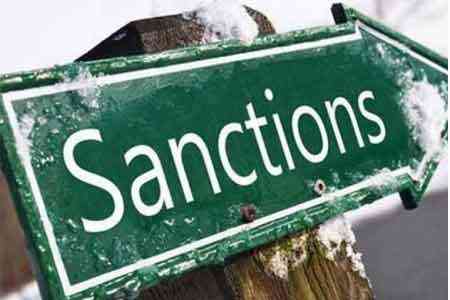


ArmInfo.Banks in a number of countries, due to the risk of sanctions, began to block payments for the supply of electronics for legal entities from Russia. Suppliers are trying to import electronics under other commodity codes and are looking for other payment methods. The Kommersant newspaper writes.
In the past two weeks, suppliers have increasingly encountered cases when banks in Armenia, Kazakhstan and Hong Kong block payments from Russian legal entities under the commodity nomenclature of foreign economic activity (TN VED) 8542, which includes microcircuits, processors and other equipment. According to one of the interlocutors of the newspaper, this is due to the tenth package of US sanctions introduced in February. According to him, foreign banks may be subject to restrictions for cooperation with Russia. This refers to any provision of funds, goods or services to or from a blocked person. As noted by the source of the publication, now Russian companies will have to import components needed for the production of computers, servers, data storage systems (SHD) and other equipment, under the "alternative" TN VED codes. Or they will have to supply the equipment "entirely assembled" Another source claims that payment is also blocked for the supply of the latest generation of telecommunications equipment, as well as storage systems and servers.
The Central Bank of Russia explained that "compliance procedures for specific foreign banks depend on their internal policies and in different periods can be characterized by varying degrees of rigidity." The head of the Russian-Asian Union of Industrialists and Entrepreneurs, Vitaly Mankevich, said in an interview with the publication that partners from Hong Kong characterize the situation as difficult. At the same time, another interlocutor noted that not all Armenian or Hong Kong banks are blocking payments yet, and suppliers themselves are starting to use "other methods of making payments." The above-mentioned package of sanctions was presented by the USA on February 24, one year after the start of Russia's special operation in Ukraine. 11 Russian mid-level banks, including regional ones, fell under the restriction. The US Treasury said the sanctioned entities are "turning to smaller banks" and asset managers in an attempt to circumvent the restrictions.
The Russian authorities consider the Western sanctions illegal and say that they will harm only their initiators. At the same time, no, "even the toughest sanctions" have ever led to "countries somehow changing their position", the Kremlin stressed. The Wall Street Journal wrote that in 2022 a number of post-Soviet countries, including Armenia and Kazakhstan, increased imports of goods from the EU and the US, and also increased exports to Russia in parallel. The EU considers this a sign of sanctions circumvention.
Armenian Prime Minister Nikol Pashinyan said that the threat of falling under Western sanctions is a red line for Yerevan in relations with Moscow. < Sanctions are our red lines. And we are clearly telling this to the Russians: 'we don't want to hurt you, but we can't afford to come under sanctions ourselves>, he explained. A similar position is held by the President of Kazakhstan, Kassym-Jomart Tokayev. Last summer, he said that he did not renounce allied obligations with respect to Russia, but noted that "sanctions are sanctions" and Kazakhstan will not violate them.